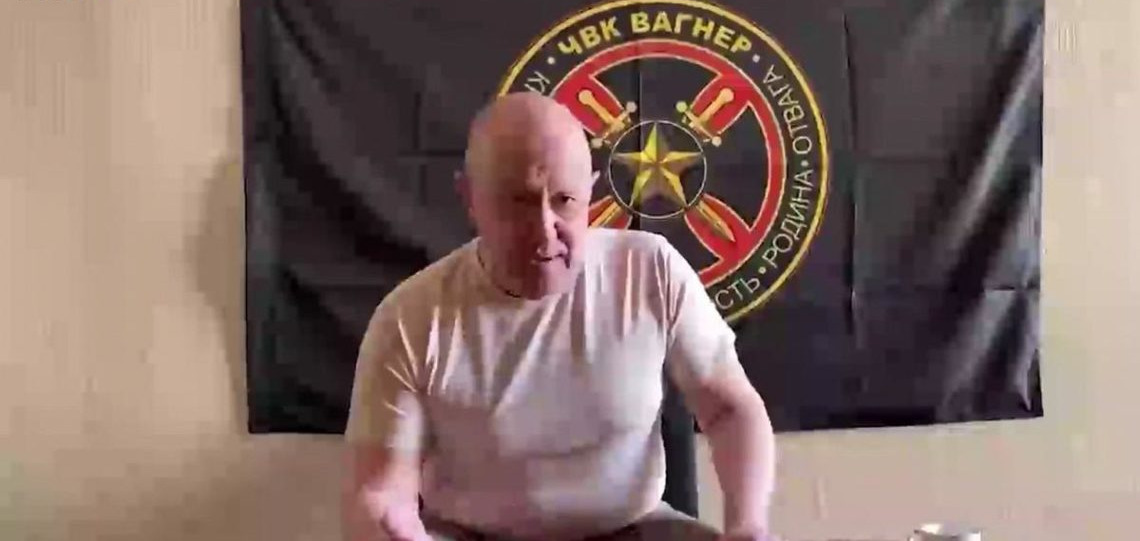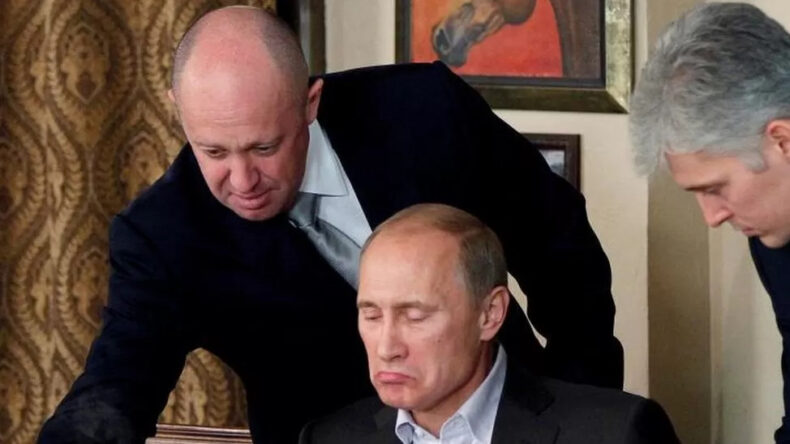Tensions between feuding Kremlin factions over the war in Ukraine erupted into open conflict as Yevgeny Prigozhin, the head of the Wagner mercenary group, accused Russia’s military of attacking his forces and vowed to take action against his enemies.
The rebellion marked the most significant challenge to President Vladimir Putin’s authority since the invasion of Ukraine 16 months ago. As the situation unfolded, Prigozhin claimed control over the city of Rostov-on-Don, demanding the presence of top military leaders to address what he called their disastrous leadership of the war which has now been confirmed via video.
Wagner Leader’s Accusations and Defiance
Yevgeny Prigozhin, the powerful head of the Wagner mercenary group, accused Russia’s military, including Defense Minister Sergei Shoigu, of orchestrating a missile attack on a Wagner base and causing significant losses among Russian troops. Prigozhin’s audio messages, posted on his Telegram channel, declared his intention to punish the military leaders and called for justice. He claimed to have 25,000 fighters moving towards Moscow and vowed to destroy anyone who opposed them.

Authorities Respond with Criminal Probe
In response to Prigozhin’s actions, Russian authorities initiated a criminal investigation against him for armed mutiny. The Federal Security Service issued a statement urging Wagner forces to ignore Prigozhin’s orders and to detain him. Regulators blocked access to Google’s news aggregator in Russia, and security was tightened in Moscow, including around government buildings. President Putin was receiving continuous updates on the situation, and the White House stated that President Joe Biden was briefed on the matter.
Friction between Prigozhin and Defense Establishment
The conflict between Prigozhin and Russia’s defense establishment has been escalating for months, with Prigozhin openly accusing Defense Minister Shoigu and top general Valery Gerasimov of incompetence. Prigozhin criticized their handling of the war in Ukraine, particularly their alleged failure to support Wagner forces during the battles for Bakhmut. While Prigozhin’s high profile and outspoken nature have irked the military brass, Putin had previously tolerated his behavior due to the effectiveness of his troops on the frontlines.
Uncertainty Surrounding Prigozhin’s Claims
There was no immediate evidence to confirm Prigozhin’s claims that his forces had shot down a helicopter or that he had taken control of Rostov-on-Don. However, the authorities were not taking any chances and tightened security measures. The situation remained fluid, with conflicting reports and unverified footage circulating on social media. The overall response from the authorities indicated their determination to quash the mutiny and maintain control.
Potential Impact on Putin’s Authority
The armed mutiny by Prigozhin presents a significant challenge to Putin’s authority. While Prigozhin’s threats and actions are seen by some as the end of Wagner, the government’s response underscores its determination to suppress the rebellion. Analysts suggest that the situation marks the most significant domestic crisis for Putin since the invasion of Ukraine. As the standoff continues, the repercussions could have far-reaching consequences for the ongoing war and the stability of Putin’s regime.
The armed mutiny led by Yevgeny Prigozhin, head of the Wagner mercenary group, has plunged Russia into a power struggle between feuding Kremlin factions. Prigozhin’s accusations against the military leadership, his vow to punish them, and his claim to have thousands of fighters mobilizing have prompted a swift response from the authorities. While the situation remains uncertain, President Putin in a televised address today has called the rebellion a “stab in the back”.













